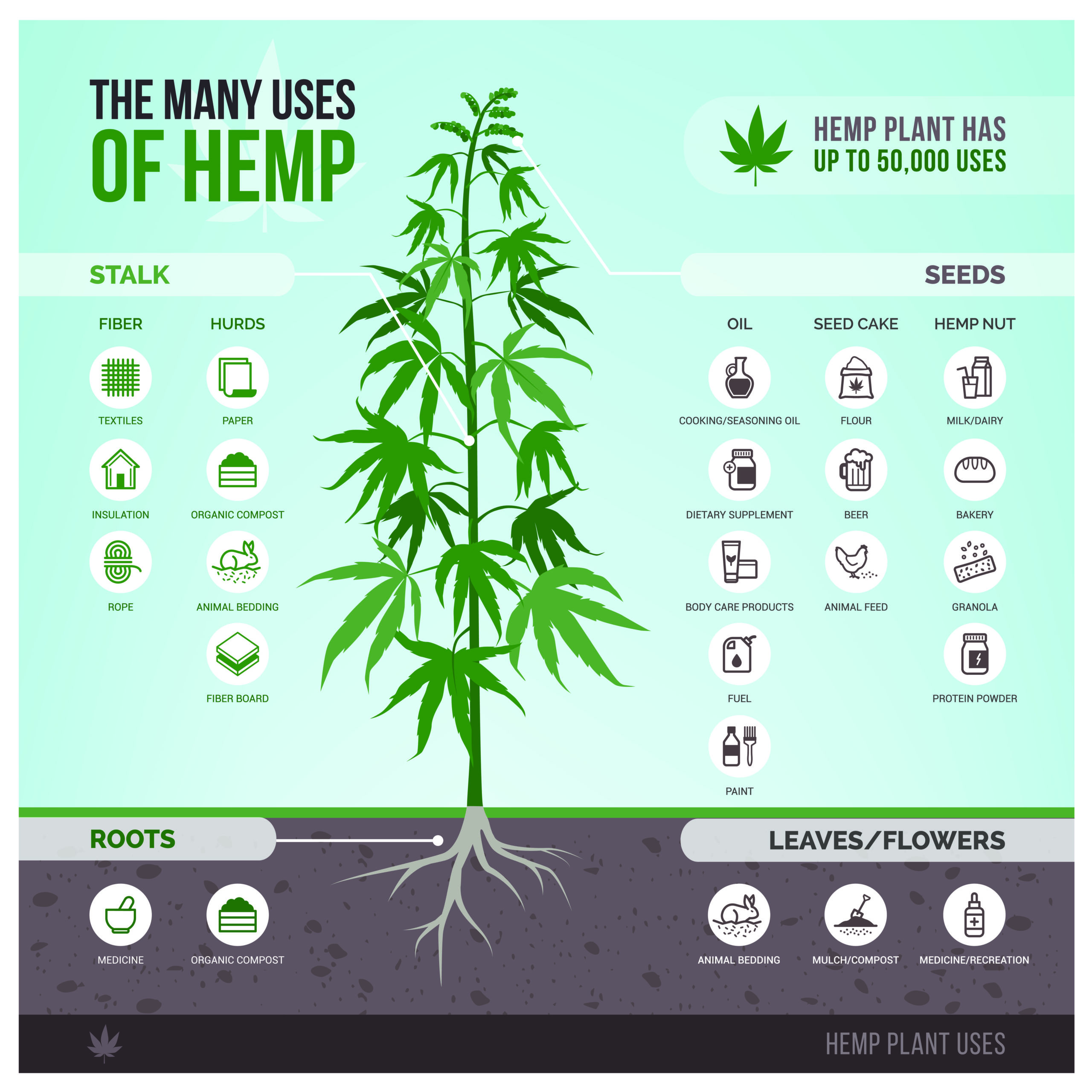Hemp can be used to make a myriad of products such as lotions, clothing, rope, particleboard – the list goes on. Hemp, which differs from marijuana, has been removed from the list of controlled substances at the federal level, but its recognition at the state level is murky at best. Recently, however, lawmakers in North Carolina have taken a step towards recognizing hemp’s agricultural potential, according to JLF’s Jon Sanders most recent research brief. Before getting into the potential reforms, Sanders explains the difference between marijuana and hemp:
Unlike marijuana, hemp doesn’t contain delta-9 tetrahydrocannabinol (THC), the compound that dulls the mind, relaxes the body, and gives the stomach a desperate craving for pizza and nachos.
By federal definition, hemp products contain no more than a 0.3 percent concentration level of THC. They contain nonpsychoactive chemical compounds known as cannabinoids, especially cannabidiol (CBD), which are purported to offer health benefits without the mind-altering effects.
Members of the General Assembly have introduced Senate Bill 315, a.k.a. the North Carolina Farm Act of 2019, which, if passed, would do a number of things including:

- Define hemp, hemp extracts, and a wide range of hemp products for commercial sale (but not smokable hemp). All must be within the federal defined THC level for hemp.
- Establish licenses for farmers who wish to cultivate hemp. They would be provided by the North Carolina Hemp Commission, renamed from the Industrial Hemp Commission.
- Require licensed hemp farmers to provide precise locations of their hemp fields and consent to surprise inspections of them at any time by the N.C. Department of Agriculture and Consumer Services (DACS), the State Bureau of Investigation, or local law enforcement.
- Allow possession, handling, transportation, and sales of hemp products without a license.
Regulating the production of this crop could benefit the state, Sanders writes:
Taking action now to regulate hemp in accordance with federal expectations would boost North Carolina agriculture. It could potentially yield a double bonus by making North Carolina a first mover in regulating hemp, and it would also help retailers and consumers here by removing any uncertainty over hemp products.
Read the full brief here. Learn more about North Carolina economic development here.


